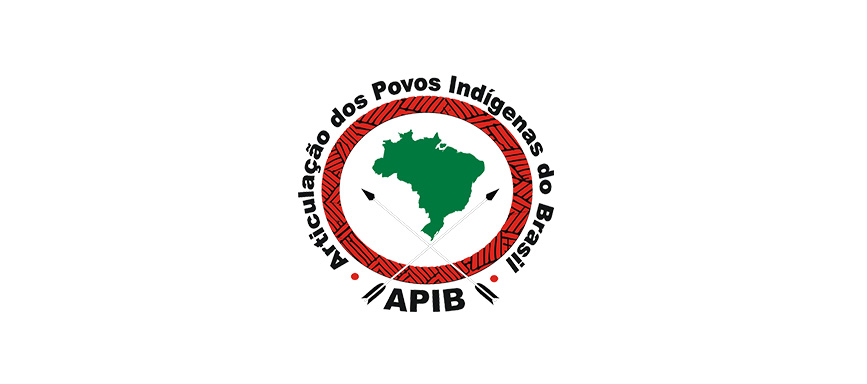Given the Bolsonaro government’s complete neglect in the face of the current crisis, indigenous peoples have taken their own measures to protect communities from the spread of Covid-19. While a national action plan to combat the pandemic has not been established, indigenous peoples have turned to state governments. On April 3, 2020, the Coalition of Indigenous Peoples of Brazil (APIB) sent a letter to the governors of all 26 states and the Federal District requesting the adoption of special measures to protect indigenous peoples in face of threats from the Covid-19 pandemic.
The impacts of the coronavirus pandemic are increasing every day in Brazil. Indigenous peoples are in a situation of great vulnerability, with a real risk that this new virus will cause another genocide, with the potential to decimate whole communities. The arrival of the Covid-19 pandemic among indigenous peoples and territories in Brazil emerges as a scenario of extreme concern, which must be immediately addressed by health authorities and indigenous organizations.
So far the death of two indigenous people has been confirmed. A woman from the Borari people in the municipality of Santarém, in Pará, died on March 20 and another indigenous person, from the Murá people, died on April 5 in the city of Manaus, in Amazonas. And four indigenous people of the Kokama people, including a baby, tested positive for Covid-19 this week, in the municipality of Santo Antônio do Içá, also in Amazonas State.
Indigenous peoples are not only exposed to the novel coronavirus, but also to the marked social vulnerability that makes it difficult to face the epidemic, as well as concerns with food security. Today, many indigenous communities need to buy food in town and depend on social programs, which requires additional measures to help communities implement social isolation strategies.
A number of existing illnesses make indigenous people vulnerable to coronavirus complications. This situation increases the need for access to services in specialized hospitals in capital cities. Indigenous territories are often distant from these towns and do not have adequate essential public services. This situation makes it difficult to identify and/or treat severe cases of coronavirus in indigenous populations.
APIB also reiterates concerns with the situation of indigenous peoples in voluntary isolation and recent contact (“uncontacted peoples”) in the Amazon. APIB proposes the adoption of protection strategies to prevent the entrance of outsiders into these territories, to help prevent the entry of the coronavirus.
APIB has consulted in depth with indigenous healthcare specialists, and proposes the following 10 urgent action points to help protect our communities from the spread of Covid-19:
1. Coordination between all state and municipal health secretariats with indigenous health agencies in order to guarantee access to information on the epidemiological situation and the actions being carried out in each indigenous territory and village, as well as among indigenous populations in urban areas;
2. Guarantee that emergency plans for the care of critically ill patients in the states and municipalities include the indigenous population, making the flow of indigenous patients and requests for assistance explicit and in a timely manner, in conjunction with indigenous health agencies;
3. Articulation with health secretariats, social assistance, and other social policies to enable the isolation and quarantine of those indigenous people who are in transit returning to their territories and need to take these preventive measures before their entry or in the case of suspected infections or confirmed cases of coronavirus;
4. Provision of rapid tests for Covid-19 and supply of these tests to all Special Indigenous Sanitary Districts in order to control the entry of indigenous people who are in urban centers and seek to return to their territories. Tests must be prioritized to control the entry and exit of indigenous territories, in order to ensure the virus does not spread widely among this population;
5. Inclusion of indigenous populations as a priority group in speeding up the provision of the annual flu vaccine;
6. Guarantee of stocks and provision of Personal Protective Equipment (PPEs) for indigenous healthcare workers, as well as suspected and confirmed cases and their family members who may come to town with them;
7. For the duration of this health crisis, ensure the supply of medicines such as Oseltamivir, indicated for the groups most at risk of complications from the coronavirus, which in this case includes indigenous peoples, according to protocols from the Ministry of Health;
8. Support for Special Indigenous Sanitary Districts (DSEI) for training their health professionals to deal with and monitor the coronavirus, as in indigenous territories access to virtual communication is often precarious and insufficient;
9. Provision of hygiene materials and PPEs for all Indigenous Health Centers for patients and their caretakers, as well as health professionals;
10. Include indigenous organizations that are members of APIB in planning and emergency meetings in each state, in order to ensure that the specific needs and realities of indigenous peoples are addressed.

